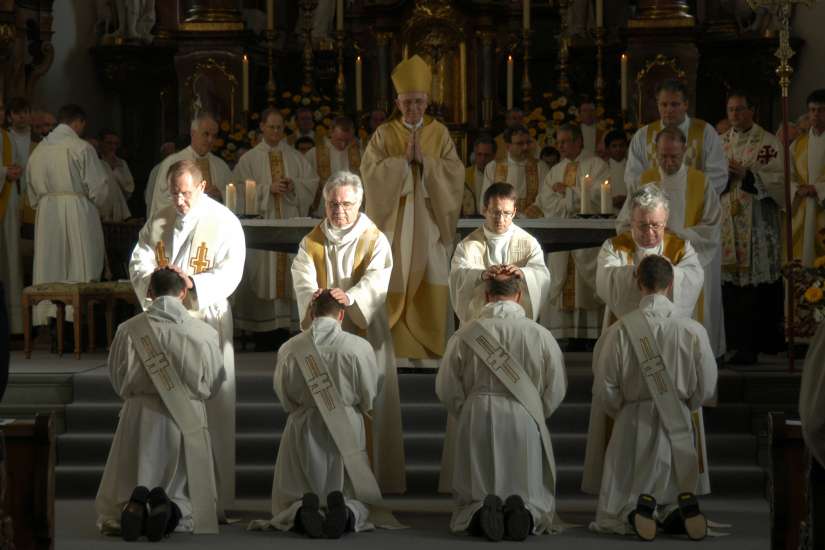Pope Francis approved the definitive interpretation of church law at a meeting in May with officials of the Pontifical Council for Legislative Texts, said a statement published by the Vatican Sept. 15.
Canon 1041 of the Code of Canon Law defines as "irregular for receiving (holy) orders" a person who has "committed voluntary homicide or procured a completed abortion and all those who positively cooperated in either," as well as "a person who has mutilated himself or another gravely and maliciously or who has attempted suicide."
A question was submitted to the Vatican asking if the canon also applies to a non-Catholic and therefore would require a special dispensation if the man were later to become Catholic and seek ordination as a Catholic priest. The pontifical council answered, "Affirmative."
Bishop Juan Ignacio Arrieta, secretary of the Pontifical Council for Legislative Texts, told reporters the sin involved can be forgiven if the person is contrite, "but a warning sign remains," and a special intervention of the bishop is needed before the person can be ordained.
The extra caution, he said, is meant to "protect the dignity of the sacrament" of holy orders and the community of faithful the priest would serve.
A purely formal reading of the canon could lead to an assumption that it applies only to a person who was Catholic at the time the offense occurred, Bishop Arrieta wrote in the Vatican newspaper, L'Osservatore Romano. Such a reading would be "particularly paradoxical and unjust because both Catholics and non-Catholics are equally required to respect their own lives and the lives of others."
"These cases do not happen often," he told reporters, "but are increasing" with men entering the seminary later and with more men – particularly former Anglican priests in English-speaking countries – seeking ordination as Catholic priests.


